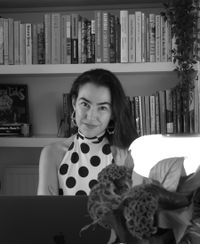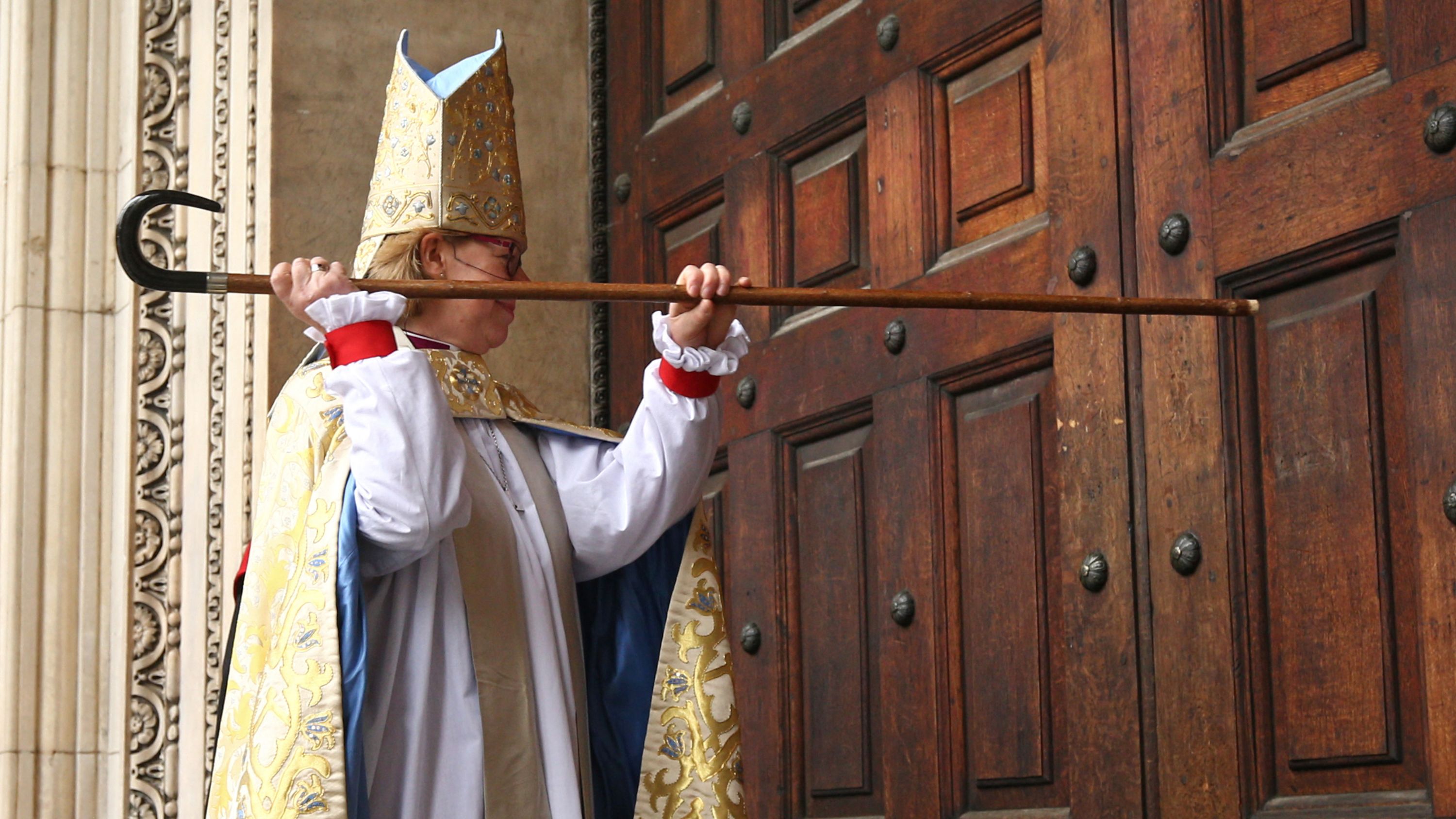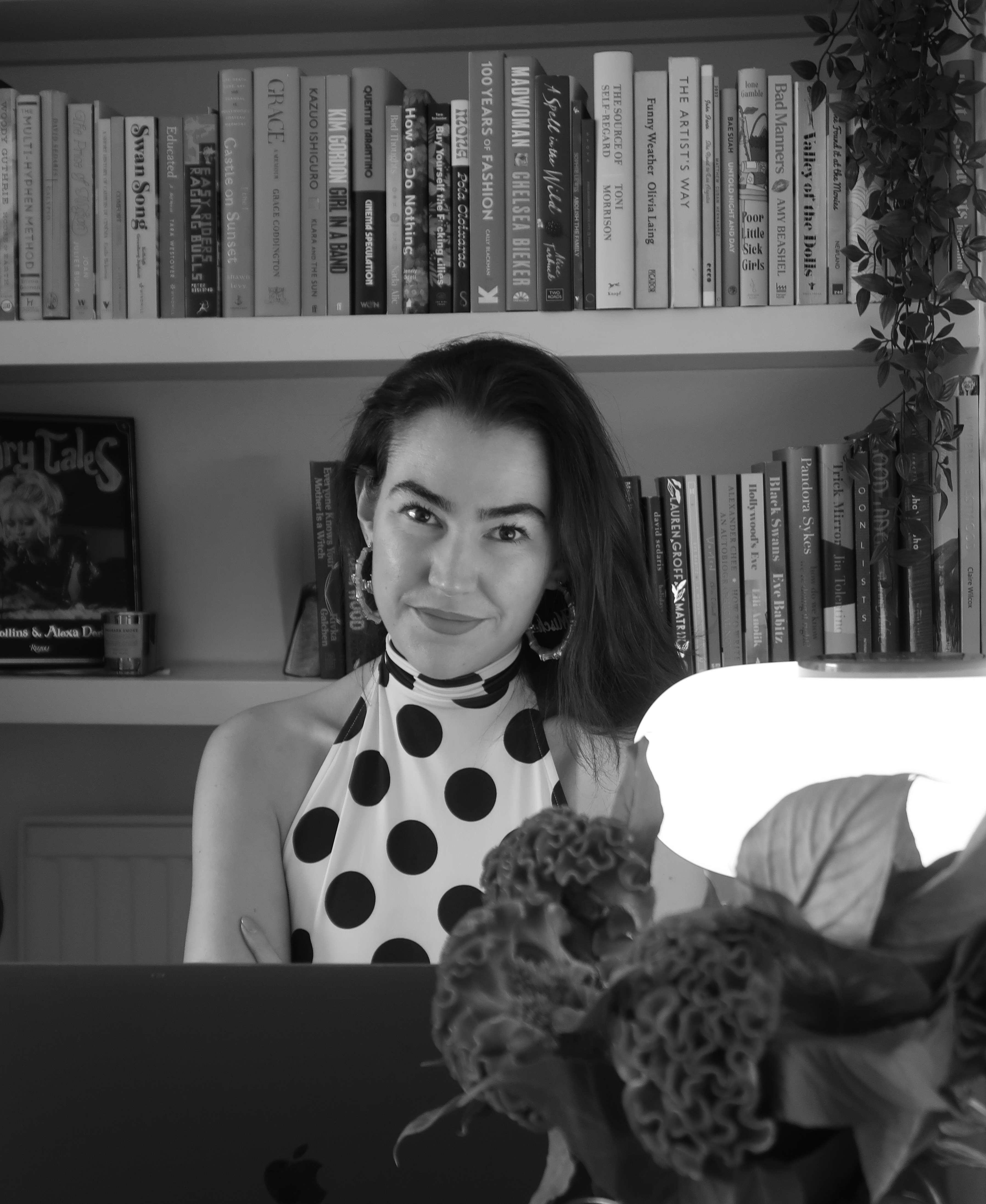Britain Has Its First Female Archbishop of Canterbury — So Why Did Some Headlines Name Her Husband Instead?
“We're still measuring women by who they're married to and whether they're mothers, not by what they've achieved.”


Celebrity news, beauty, fashion advice, and fascinating features, delivered straight to your inbox!
You are now subscribed
Your newsletter sign-up was successful
When Dame Sarah Mullally was named the first female Archbishop of Canterbury, it should have been a moment that spotlighted her — the woman making history. After all, she is the first-ever woman to hold the position of Archbishop-designate — the spiritual head of the Anglican Communion and one of the most influential religious figures in the UK.
A moment that should have celebrated Mullally’s historic leadership was quietly reframed through the lens of someone else, someone male.
Despite the nature of the appointment — the first of its kind since the founding of the Church of England in the 6th century and an indicator that it is trying to modernise — headlines from some of the country’s biggest mainstream media outlets chose to highlight her husband instead. Even in 2025, the coverage doesn't fully reflect the significance of the moment. In fact, it runs counter to it.
A post shared by Amnesty UK Feminists (@amnestyfeminist)
A photo posted by on
“It’s wild that Sky named the literal Archbishop’s husband instead of naming her,” says Claire Gibson, a spokesperson for the Amnesty Feminist Network, who shared the post on X. “Women’s names have been erased throughout history — and we're still doing it in headlines in 2025.”
Recent research from Ancestry reveals just how deep this erasure runs. Nearly a third of Brits (29%) believe women haven’t received the recognition they deserve in history. Yet when asked to name pioneering women, the knowledge gap is staggering. 96% of us don’t know who Hilda Hewlett was (the UK’s first licensed female pilot); 95% have never heard of Noor Inayat Khan, a British resistance agent during WWII; and 93% failed to recognise Eleanor Rathbone, the social reformer who paved the way for child benefits.
Mothers' names weren’t included on children’s marriage certificates in England and Wales until 2021
And it’s not just about prominent names like Dame Sarah Mullally. Our own female ancestors are missing, too. Ancestry notes that historically, women were excluded from baptism records, and were often referred to only by their husband’s name in newspapers and legal documents: “Mrs. John Smith”, say, instead of their own identity. In fact, mothers' names weren’t even included on children’s marriage certificates in England and Wales until 2021.
“These women, often unrecognised in history books and documentation, played a crucial role in shaping the world we live in today,” says Laura House, Family History Expert at Ancestry. And yet their names, and their stories, continue to be omitted.
Celebrity news, beauty, fashion advice, and fascinating features, delivered straight to your inbox!
“Even in the corrected version, [Mullally’s] marital status and her motherhood are listed before her career background, which is infinitely more relevant to her appointment," says Gibson. "We're still measuring women by who they're married to and whether they're mothers — not by what they've achieved.”
This pattern doesn’t just obscure our past; it distorts our present. If a woman can rise to the highest position in the Church of England and still be introduced to the world via her husband’s name, what hope do any of us have of truly being recognised?
While the original article has since been updated to lead with Mullally’s name instead of her age and marital status, it may have been an honest (albeit baffling) oversight. But the fact that it happened at all suggests that socially, we are still not entirely comfortable with women in positions of power.
There are countless examples of women’s achievements, identities, and even their existence being erased from historical records.
Laura House, Family History Expert at Ancestry UK
“Having a woman as Archbishop of Canterbury is a win for feminism,” Gibson says, “but headlines like these show we’re still uncomfortable with women in leadership roles. We’re still a long, long way off from achieving gender equality.”
That discomfort shows up in countless ways. 82% of Brits don’t know when women gained equal voting rights with men (1928), and 85% are unaware of the year the Equal Pay Act came into law (1970). This kind of erasure isn’t limited to headlines or history books; it’s everywhere. There are more statues of Paddington Bear than of women in London. Less than 15% of the capital’s blue plaques honour women. Women make up 51% of the population yet hold only 40% of parliamentary seats.
Dame Sarah Mullally’s appointment is undoubtedly historic — but it’s also telling. It shows that even now, women are still not allowed to stand at the centre of their own stories. And while we can’t rewrite history, we can start naming the women who shaped it, and the women shaping it right now.

Mischa Anouk Smith is the News and Features Editor of Marie Claire UK, commissioning and writing in-depth features on culture, politics, and issues that shape women’s lives. Her work blends sharp cultural insight with rigorous reporting, from pop culture and technology to fertility, work, and relationships. Mischa’s investigations have earned awards and led to appearances on BBC Politics Live and Woman’s Hour. For her investigation into rape culture in primary schools, she was shortlisted for an End Violence Against Women award. She previously wrote for Refinery29, Stylist, Dazed, and Far Out.